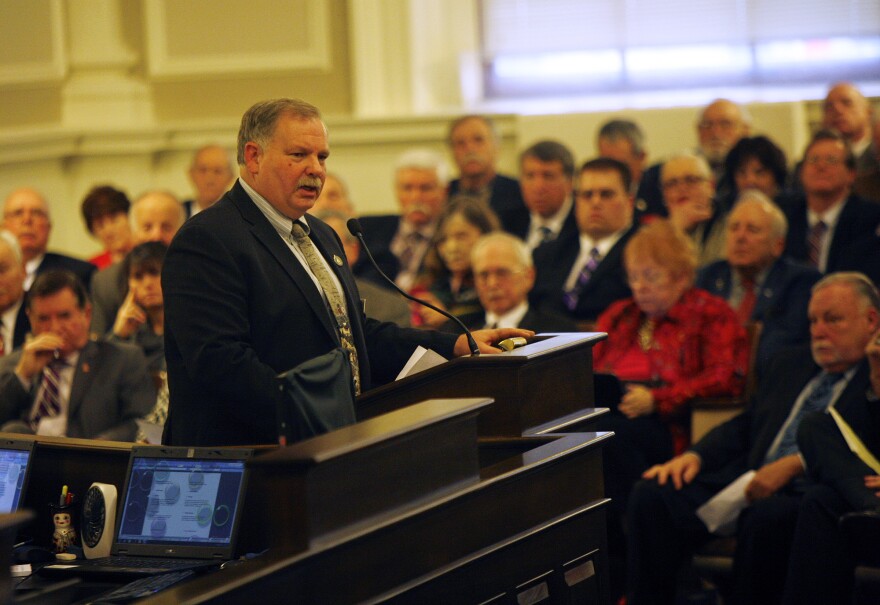The New Hampshire House Finance Committee has voted along party lines to send an $11 billion state spending plan to the full House, for a second time.
For the past week or so Finance Chairman Neal Kurk has described this budget as “business as usual.”
But cobbling together this year's budget wasn't easy, as lawmakers scrambled to find money to fill a $68 million hole needed to avert deep layoffs in the Department of Transportation, after Kurk’s plan to hike the gasoline tax failed to gain traction.

“The money that we took to pay for this came partially from level funding the university system and taking money that would have been used to fund energy efficient projects – that is basically what happened,” Kurk said.
Specifically the revised budget redirects $14 million headed to the state's universities. And if this policy stays, Chancellor Todd Leach of the University System, of New Hampshire says tuition will likely go up.
“So if it is at that level we are still at 75 percent of 2009 levels makes the tuition freeze probably untenable and probably wouldn’t be possible to do,” Leach said.
The budget also taps the state’s renewable energy fund to the tune of $50 million. Jim O’Brien, director of external affairs for the Nature Conservancy, said that this policy not only undercuts the goal of the fund – fostering renewable energy – it is also legally questionable.
“What this really does it is going to be charging a fee on rate-payers on their electric bill and instead it is going to be going to the department of transportation and so you have rate-payers pretty much paying a new tax to fund roads,” O'Brien said.
Another place the budget pulls money from is aid for public schools, which Concord Democrat Mary Jane Wallner says will lead to a downshifting of costs.
“No matter how you cut it, there is less going to our schools. You can put it in whatever pot you want but it is money that falls right back on the taxpayers,” Wallner said.

These latest moves follow earlier reductions in funds for services for people with developmental disabilities and for the elderly. As well as repealing Medicaid expansion.
Governor Maggie Hassan calls those decisions “draconian.” In a statement she said the latest reductions makes matters worse and are “unnecessary.” But these moves could be politically "necessary" for this proposal to attract broad Republican support. This budget is a test for House Speaker Shawn Jasper’s leadership and his ability to manage what remains a fractured caucus.
After the budget cleared the finance committee, Jasper said whether it will pass when it hits the floor next week – is anyone’s guess.
“Well one never knows. We are hoping that once we separate the wheat from the chaff, people will understand that this is a good budget for Republicans, this is what Republicans asked for,” Jasper said.
But regardless of what the House ends up doing with the budget, its not clear how many of these decisions will end up standing. The New Hampshire Senate gets its turn with the budget next month, and Senate leaders have indicated they don’t plan to use the House’s proposal as their guide.







